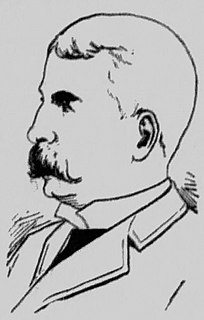A Quote by Henry David Thoreau
If a man were to place himself in an attitude to bear manfully the greatest evil that can be inflicted on him, he would find suddenly that there was no such evil to bear; his brave back would go a-begging.
Related Quotes
The truest definition of evil is that which represents it as something contrary to nature; evil is evil because it is unnatural; a vine which should bear olive-berries, an eye to which blue seems yellow, would be diseased; an unnatural mother, an unnatural son, an unnatural act, are the strongest terms of condemnation.
Evil is thus a kind of parasite on goodness. If there were no good by which to measure things, evil could not exist. Men sometimes forget this, and say, there is so much evil in the world that there cannot be a God. They are forgetting that, if there were no God, they would have no way of distinguishing evil from goodness. The very concept of evil admits and recognizes a Standard, a Whole, a Rule, an Order. Nobody would say that his automobile was out of order if he did not have a conception of how an automobile ought to run.
Evil denotes the lack of good. Not every absence of good is an evil, for absence may be taken either in a purely negative or in aprivative sense. Mere negation does not display the character of evil, otherwise nonexistents would be evil and moreover, a thing would be evil for not possessing the goodness of something else, which would mean that man is bad for not having the strength of a lion or the speed of a wild goat. But what is evil is privation; in this sense blindness means the privation of sight.
It is, indeed, a fact that, in the midst of society and sociability every evil inclination has to place itself under such great restraint, don so many masks, lay itself so often on the procrustean bed of virtue, that one could well speak of a martyrdom of the evil man. In solitude all this falls away. He who is evil is at his most evil in solitude: which is where he is at his best - and thus to the eye of him who sees everywhere only a spectacle also at his most beautiful.
How much reverence has a noble man for his enemies!--and such reverence is a bridge to love.--For he desires his enemy for himself, as his mark of distinction; he can endure no other enemy than one in whom there is nothing to despise and very much to honor! In contrast to this, picture "the enemy" as the man of ressentiment conceives him--and here precisely is his deed, his creation: he has conceived "the evil enemy," "the Evil One," and this in fact is his basic concept, from which he then evolves, as an afterthought and pendant, a "good one"--himself!

































